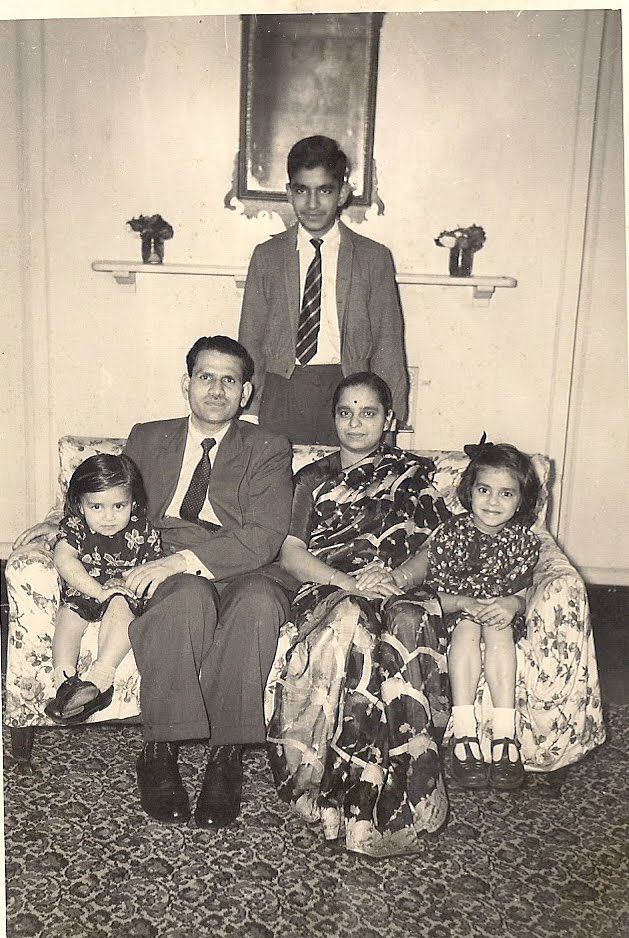Our housing society has many employees, and most residents employ part time help for their mundane household chores. Many of these helpers are Muslim women from Bengal. They have interesting ways of substituting for each other, when one or the other has to go back to her native place, for whatever reason.
When we first moved here, in October 2013, my neighbour suggested that her maid work for me as well, and said that she was honest and reliable. Which was all very well, but Mehrun was with me for perhaps two months or so. She brought in Menuka, who was with me for nearly a year and a half: mid-March this year, she came in one day and announced that she was going to her village, and Shaheen would do my work. Menuka and Shaheen were quite reliable and regular- they rarely took time off, and would normally inform me in advance if they were doing so. In fact, Shaheen only took one day off for Eid in the five months she worked for me. (That she used to come to work very early in the morning and upset my morning walk schedule was another matter). In the interim, Mehrun came back and asked to join my employment again. I was loath to dismiss Shaheen, for no fault of hers. But it so happened that a couple of months later she had to go back to her village, as her daughter's in-laws were making her life miserable. Menuka hadn't returned. When I was leaving on my travels, she told me that Mehrun would work in her stead! Quite the merry-go-round. So, since my return earlier this month, I'm finally back with my original helper.
I'd forgotten to ask Mehrun yesterday whether or not she'd been coming to work today, on Eid, and was pleasantly surprised to find her come in earlier than usual. Apparently one madam had refused to let her take the day off today, so she decided to work in all her houses. A few days ago she had informed that she was taking the next day off, which is, to my mind, perfectly acceptable. I asked her why she didn't employ the same strategy when it is an important festival ? Perhaps that madam is very overpowering/entitled. I don't know what her reasons were. But I do think it very unfair to not give a person time off to celebrate a festival.
On a happier note, while I was going to our colony shop to pick up some vegetables, she asked me to buy a litre of full cream milk, so that she could go home and make sevaiyaan. (She wanted to pay for it, but I declined. A litre of milk and some cash as Eidi seemed to be an affordable token gift).
When we first moved here, in October 2013, my neighbour suggested that her maid work for me as well, and said that she was honest and reliable. Which was all very well, but Mehrun was with me for perhaps two months or so. She brought in Menuka, who was with me for nearly a year and a half: mid-March this year, she came in one day and announced that she was going to her village, and Shaheen would do my work. Menuka and Shaheen were quite reliable and regular- they rarely took time off, and would normally inform me in advance if they were doing so. In fact, Shaheen only took one day off for Eid in the five months she worked for me. (That she used to come to work very early in the morning and upset my morning walk schedule was another matter). In the interim, Mehrun came back and asked to join my employment again. I was loath to dismiss Shaheen, for no fault of hers. But it so happened that a couple of months later she had to go back to her village, as her daughter's in-laws were making her life miserable. Menuka hadn't returned. When I was leaving on my travels, she told me that Mehrun would work in her stead! Quite the merry-go-round. So, since my return earlier this month, I'm finally back with my original helper.
I'd forgotten to ask Mehrun yesterday whether or not she'd been coming to work today, on Eid, and was pleasantly surprised to find her come in earlier than usual. Apparently one madam had refused to let her take the day off today, so she decided to work in all her houses. A few days ago she had informed that she was taking the next day off, which is, to my mind, perfectly acceptable. I asked her why she didn't employ the same strategy when it is an important festival ? Perhaps that madam is very overpowering/entitled. I don't know what her reasons were. But I do think it very unfair to not give a person time off to celebrate a festival.
On a happier note, while I was going to our colony shop to pick up some vegetables, she asked me to buy a litre of full cream milk, so that she could go home and make sevaiyaan. (She wanted to pay for it, but I declined. A litre of milk and some cash as Eidi seemed to be an affordable token gift).

